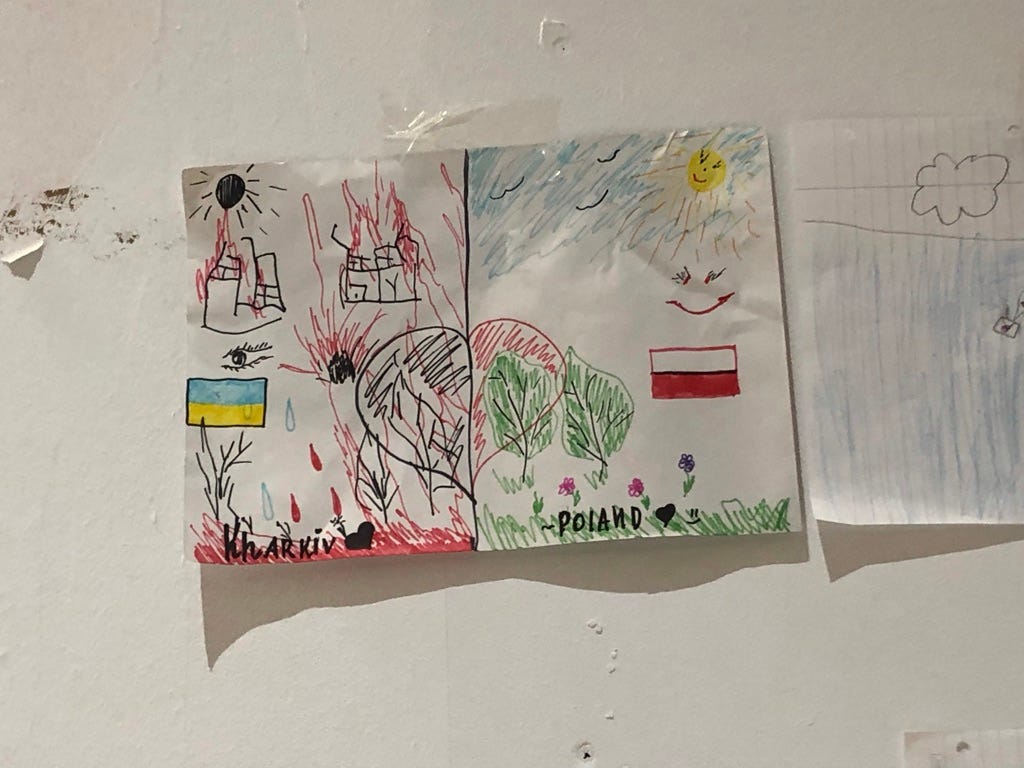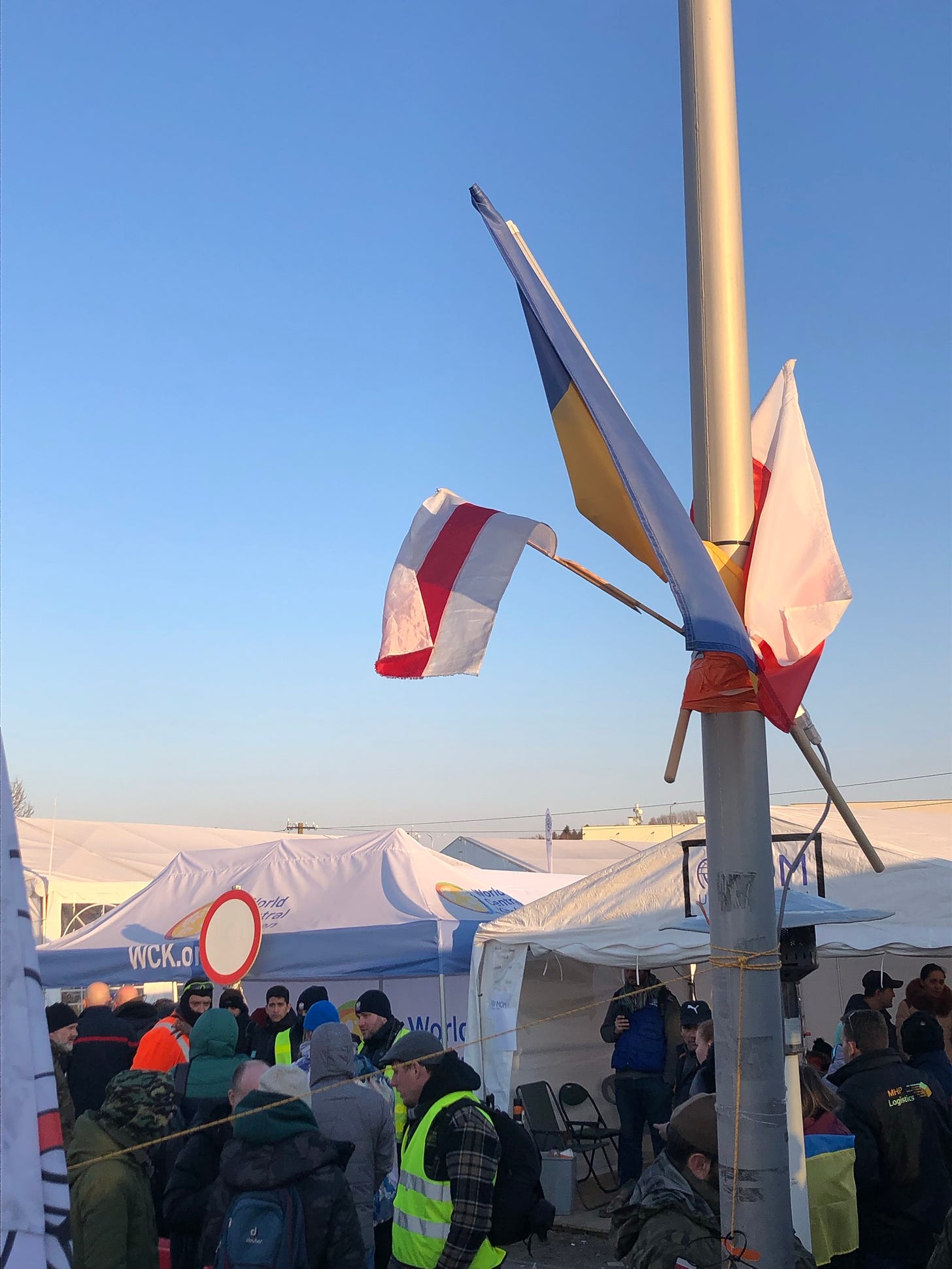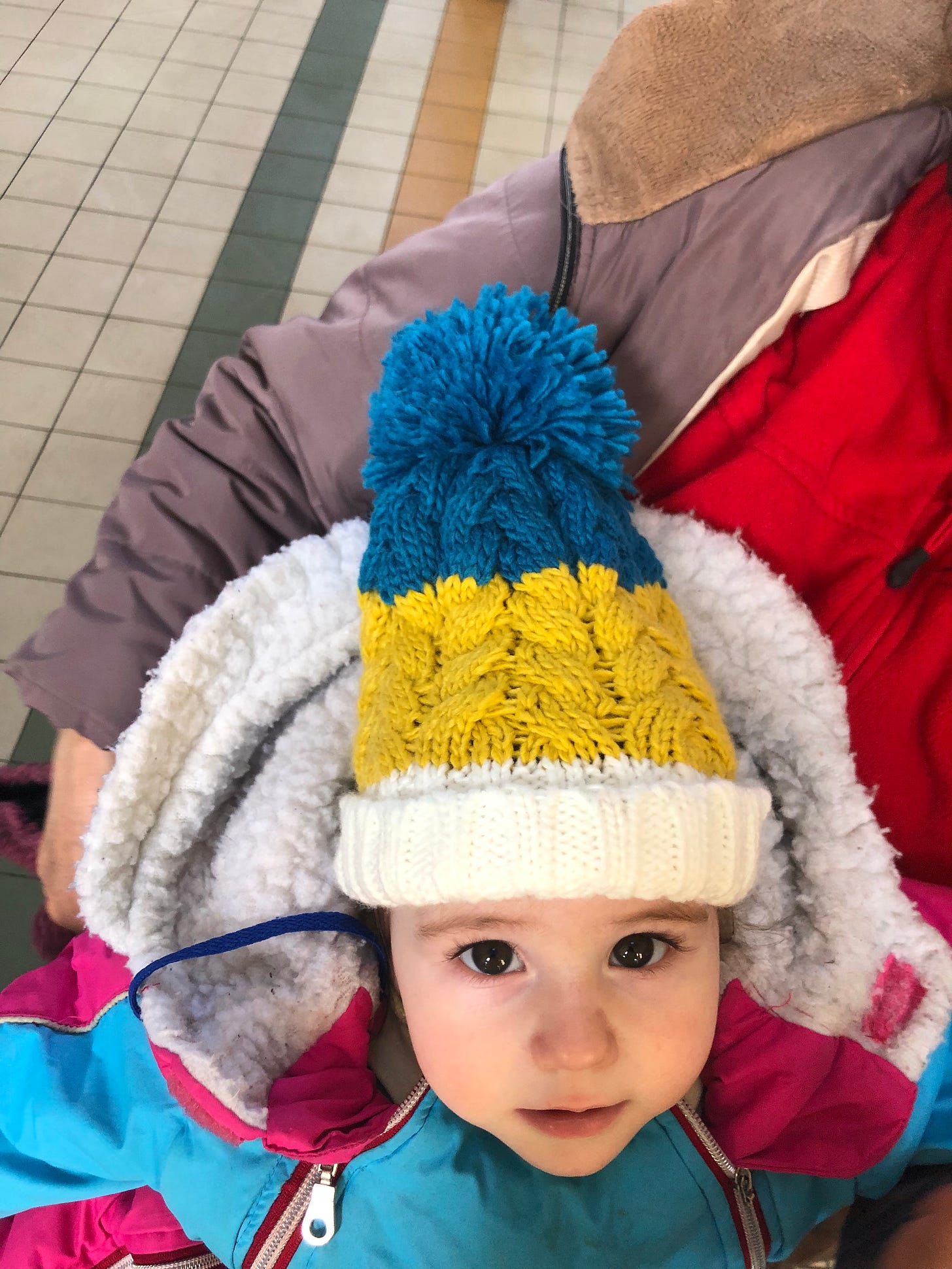The last few days have seen a huge decrease in the numbers coming over – about 33,000 yesterday, compared with 120k a day when I arrived. Nobody is quite clear as to why this is happening – probably a combination of factors:
· It is increasingly difficult to get out of parts of the east of the country, where Russia’s presence is strongest.
· In other parts of the country, Russia is stalling, and so people feel less of a need to leave.
· People are becoming aware of the lack of space/work in Central and Eastern European countries and choosing to stay.
It’s impossible to predict whether this will continue, and we are constantly preparing for another large influx. It’s hard to know how to feel about this, without having a full analysis of the reasons. Having said all of this, the need for translators and interpreters is still huge.
People are also increasingly returning to Ukraine – reasons for this are also complicated. Some women only came over to drop off their children, and now they are safe, they want to return to their husbands. Others simply find life in Europe too difficult, and would rather take their chances in their own country. One woman I met had wanted to be able to spend a few days with her elderly mother, potentially to say goodbye, before returning to join her boyfriend who is in the territorial army. I’ll write something more about this in a few days, when I have spoken to more people making this decision.
Other translators arrived from the UK over the weekend, which is great, and means we are able to cover a lot more ground, as well as to organise ourselves. We also have a car now, so we can move around form the station, to the refugee centre, to the border itself.
Rumours abound here. Last week everyone was convinced that the refugee centre would be shut down, but it seems like what actually happened is that the Red Cross (finally) properly arrived and decided to reorganise it. Part of that reorganisation process involved hugely limiting numbers for two nights, meaning that I had to tell an elderly Ukrainian man with mobility issues that his best bet for the night was to sleep in a marquee set up by Caritas, the Catholic charity. The lack of communication between the border crossing at Medyka, the train station in Przemyśl, and the refugee centre, mean that these rumours are able to spread, and real information is unable to get out. There isn’t even a WhatsApp group for volunteers.
Today I discovered that FlixBus is offering empty seats on its coaches from Przemysl across Europe to refugees for free. I found this out completely by chance, after I got chatting to one of their employees. Nobody at the station had any idea – yesterday I put a refugee family on a train to Berlin, from where they would get a coach to Frankfurt, and then a bus to Brussels, when in reality there was a free coach five minutes’ walk from us. I’m now trying to spread the word as much as possible, but it is disheartening.
The main fear here continues to be people trafficking. Yesterday a man came up to me outside the children’s room in the station and said that he had a van and ‘wanted to take children to Italy – especially poor ones, and ones without families’. He had not been registered, and had just wandered in. I got my Italian speaking friend to confront him, where he continued the refrain that he ‘wanted to take the children’ and he ‘loved children’. Polish police removed him but failed to get any information about him or his van. We followed him to the registration tent at the refugee centre, where we attracted the attention of more police, who were somewhat more helpful. This guy was clearly somewhat insane, given how blatant he was about his intentions, but it has definitely heightened all of our awareness as to the need for extra security.
In terms of what you can do to help from England – I will continue to stress the importance of donating to small organisations such as Ukrainian House and Respond Crisis Translation. World Central Kitchen is also doing great work here. My JustGiving page is still active, and donations are welcome. My friends and I have also set up a website, from where you can send money to us which will be immediately sent to Kharkiv, to buy supplies on the ground there, especially medicines. The city continues to be under siege – at the time of writing there are up to 500 civilians estimated dead by the Ukrainian government, but the real number may be far higher. I urge you all to donate directly to these causes, instead of just crossing your fingers that money given to bigger organisations ends up in the right place. Here is an excerpt from a message from a woman on the ground, who has already received some money: ‘Hello, today we bought a large batch of medicine in Moldova, including hormonal drugs, which are no longer available in Ukraine in sufficient quantities. The money also went on the evacuation of people, fuel, and delivery of humanitarian aid from different parts of Ukraine to people who are in need. Now we are ordering food for refugee children in the region’.
The most significant lesson that I have learned since being here is that people know what they need better than any NGO does. Denying people this agency is dehumanising – and it is worth all of us remembering this when we decide where to send money.
a drawing by a child in the refugee centre: Kharkiv vs Poland.
Ukrainian, Belarusian, and Polish flags at the border.
a little girl at Przemyśl station with a Ukrainian hat (photo taken and shared with the permission of her parents).







Hi Ada thanks so much for your reporting. If it’s OK I will share it with my kids school as well, to help with their understanding of the issues on the ground and hopefully draw attention to your fundraising links. Thank you so much for doing your incredible work to help refugees and also somehow having the energy to blog afterwards to share it with all of us. Take care of yourself.